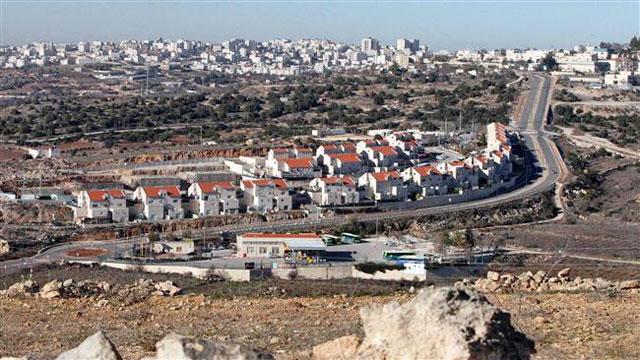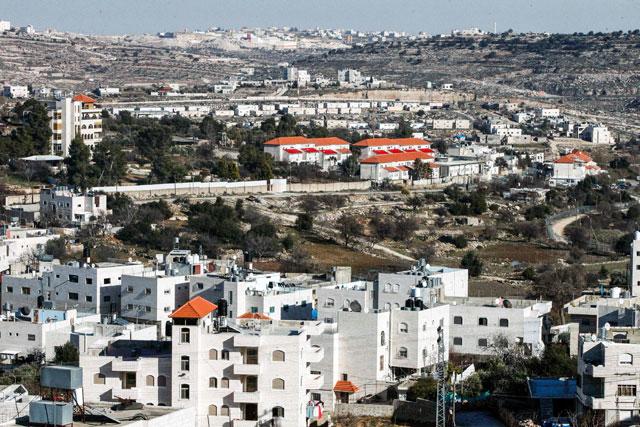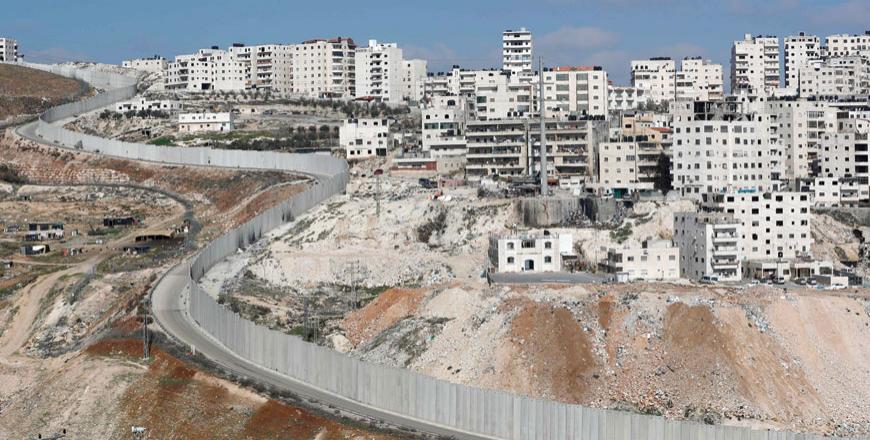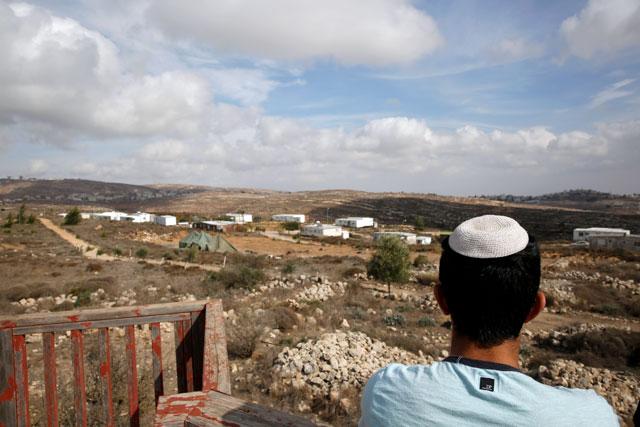You are here
Israel’s top court meets on contentious settlement law
By AFP - Jun 03,2018 - Last updated at Jun 03,2018

The photo taken from the West Bank city of Hebron on February 7, 2017 shows a view of the Israeli settlement of Kiryat Arba on the outskirts of the Palestinian town (AFP photo)
OCCUPIED JERUSALEM — Israel’s supreme court on Sunday met in an expanded panel of nine justices to consider striking down a law on settlements so contentious that the attorney general refuses to defend it.
The law, allowing expropriation of private Palestinian land for illegal Jewish settlers, triggered an outpouring of condemnation from around the world when it was passed by the Israeli parliament, the Knesset, in February last year.
Israeli and Palestinian rights groups, on behalf of 17 Palestinian villages, asked the court to declare the act unconstitutional and in August it issued a restraining order against implementation, pending its ruling.
On Sunday, attorney Harel Arnon, argued in defence of the legislation in place of Attorney General Avichai Mandelblit, who has warned the government the law could be unconstitutional and risk exposing Israel to international prosecution for war crimes.
Israeli public radio quoted him as saying in court that to disqualify legislation passed by parliament would be “abetting a coup against this administration”.
It would be, he added, “the dismemberment of the sovereignty of the Knesset”.
The act “legalises” dozens of wildcat outposts and thousands of illegal settler homes in the occupied West Bank.
Its opponents see it as promoting at least partial annexation of the territory, a key demand for parts of Prime Minister Benjamin Netanyahu’s right-wing government.
The petition against the act, seen by AFP, argues that by giving preference to Jewish settlers over the rights of Palestinian landowners it breaches an international convention on Apartheid.
“The clear, declared purpose of the law, which seeks to privilege the interests of one group on an ethnic basis and leads to the dispossession of the Palestinians, leaves no doubt that this law involves crimes under the convention,” it says.
It was not known on Sunday when the court would deliver its ruling.
International law considers all settlements to be illegal, but Israel distinguishes between those it sanctions and those it does not, dubbed outposts.
The new law allows Israel to seize Palestinian private land on which Israelis built outposts.
Palestinian landowners whose property was taken for illegal settlers would be compensated with cash or given alternative plots.
Related Articles
OCCUPIED JERUSALEM — Israeli and Palestinian rights groups petitioned the supreme court on Wednesday asking it to strike down a new law allo
OCCUPIED JERUSALEM — Israel faced mounting international criticism Tuesday over a new law allowing the appropriation of private Palestinian
OCCUPIED JERUSALEM — The Israeli parliament gave initial approval on Wednesday to a bill to legalise thousands of West Bank settler units, a














